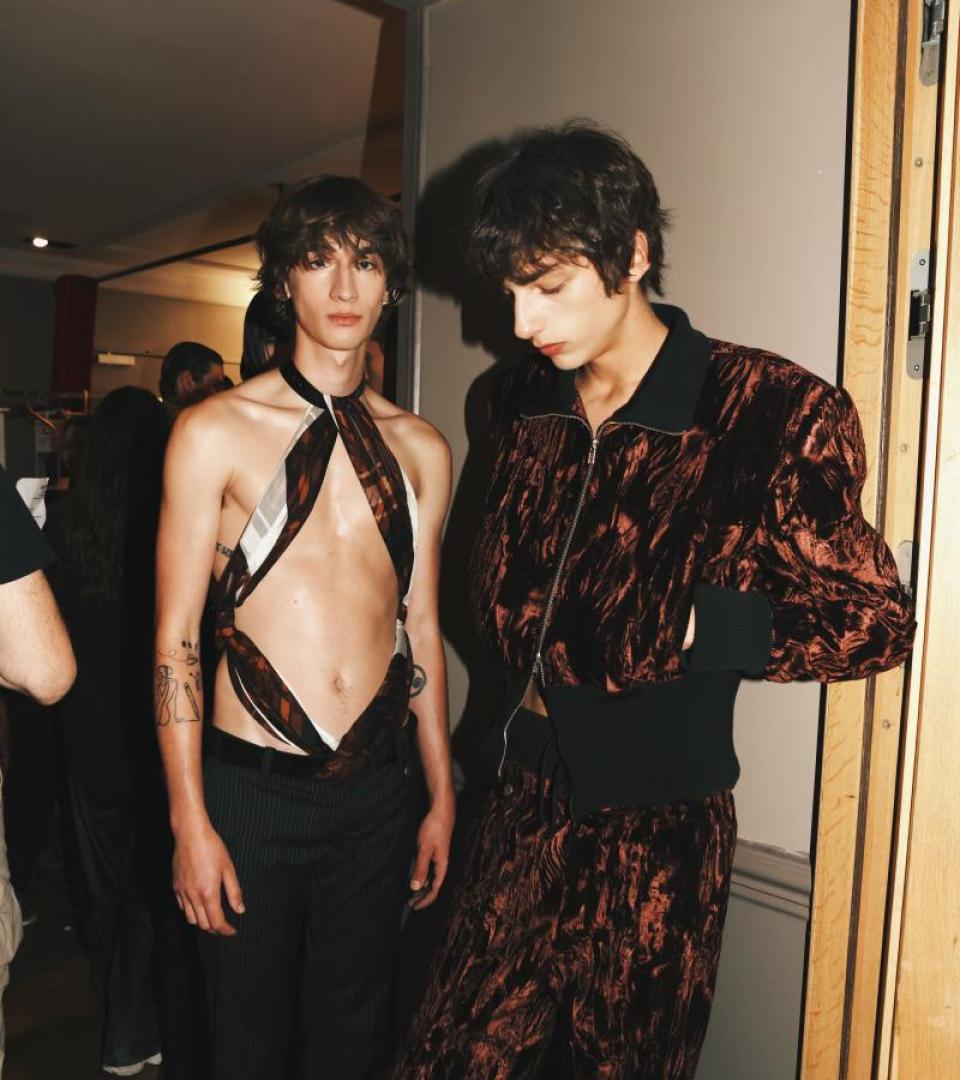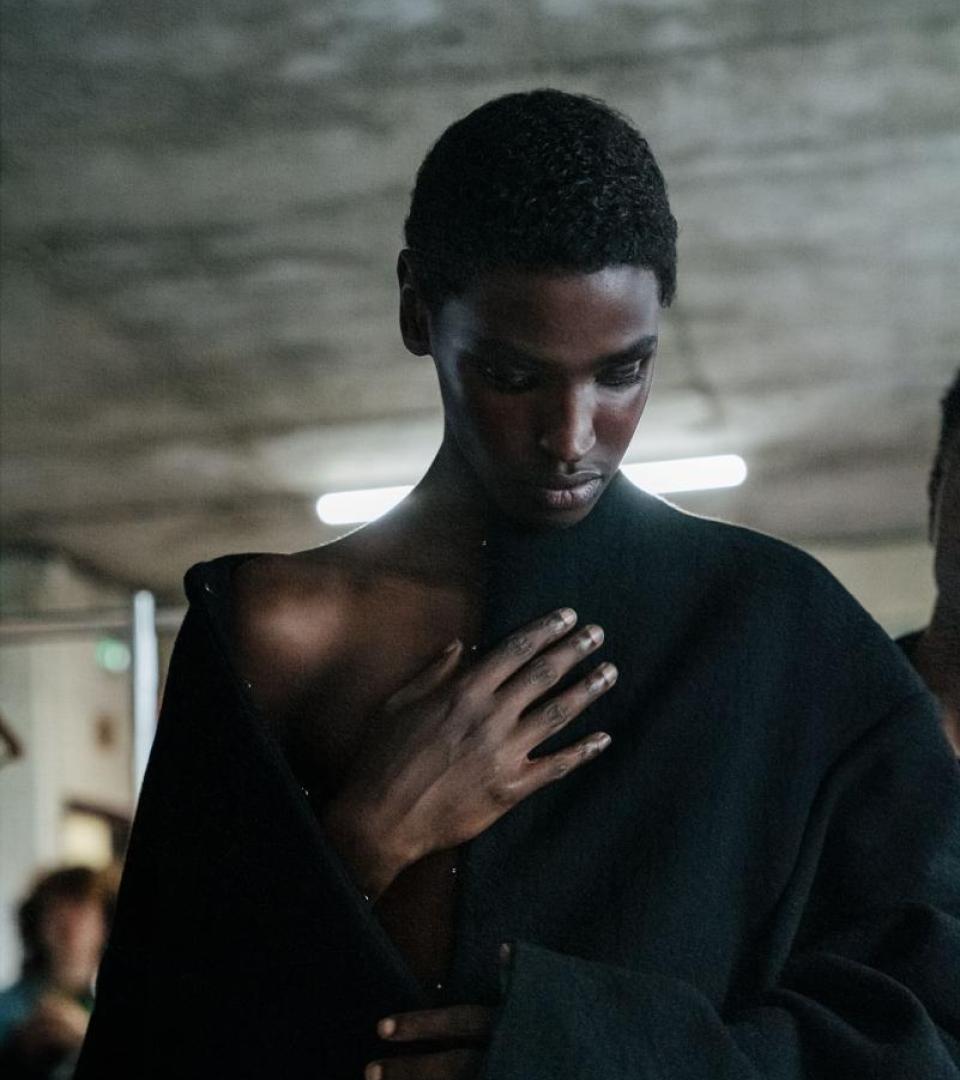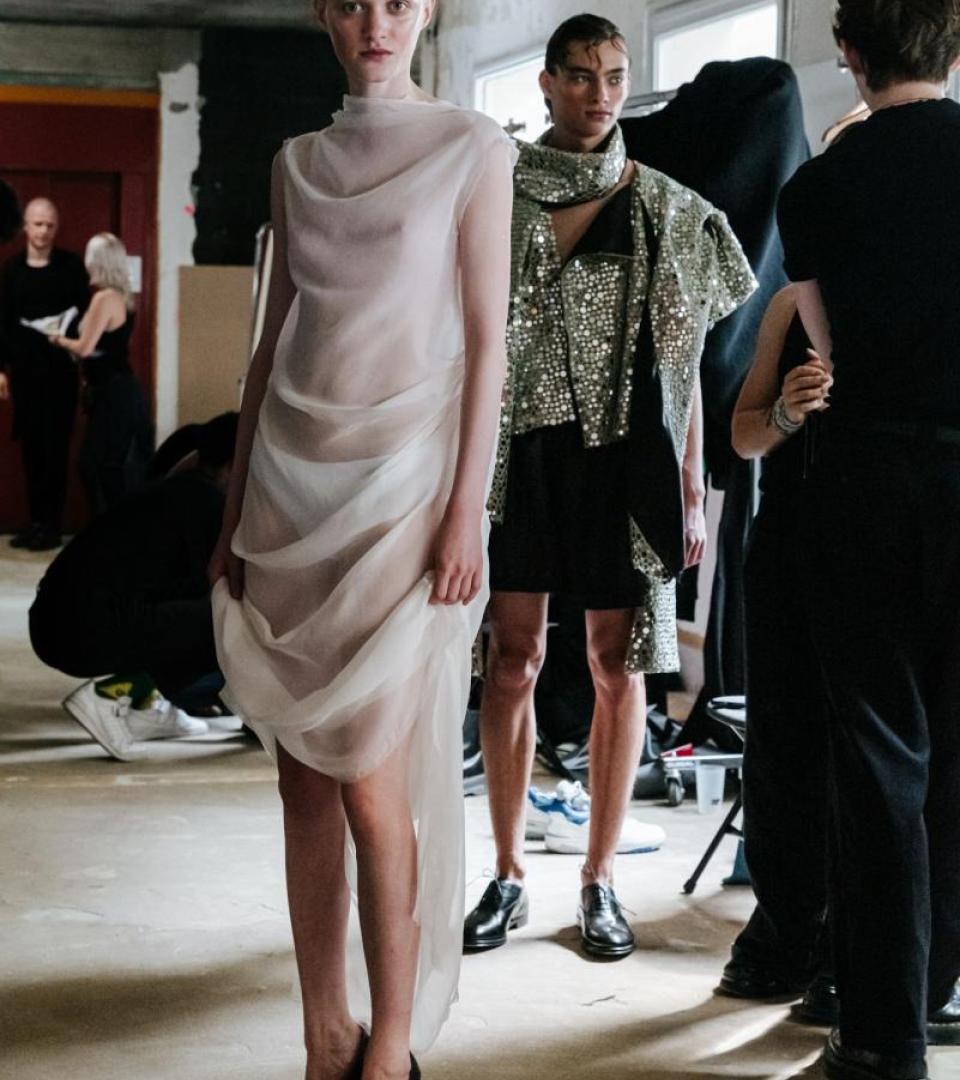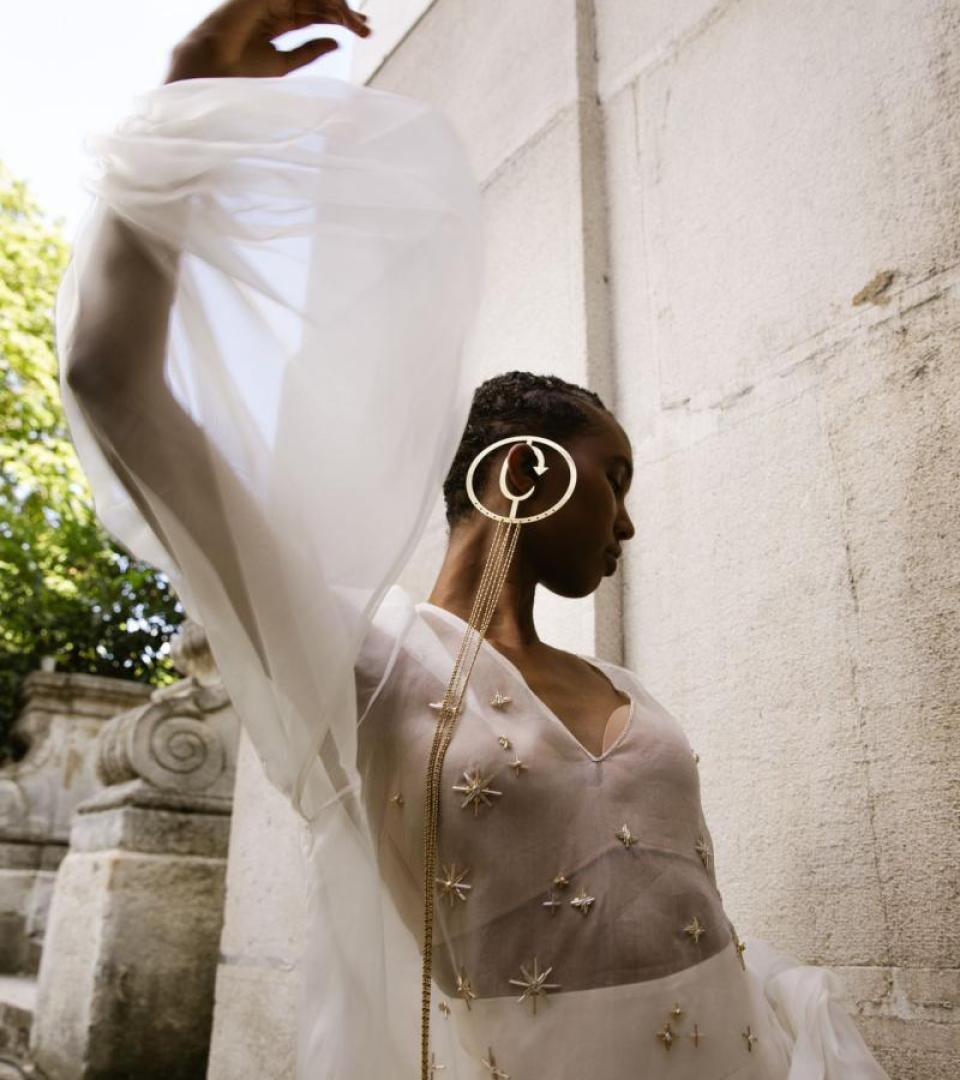A MANIFESTO SEASON
By Laurence Benaïm
“Man yesterday, feminine today, it doesn't matter: in the puzzle of life, all combinations are winners,” declares Egon Lab's press release. Through his eighth collection, under the banner of “The Very First Time,” Patjim Statovci set the tone for this Spring-Summer 2024 men’s edition of Paris Fashion Week. Inclusive. Emotional. Claiming, as Ludovic de Saint Sernin did, a "lustful elegance” did beneath the sun of "queer power" with "antidotes to a prudish moralism." Clothes no longer make the man, but expose him, touch him, and gently set him apart from all those highly guarded masculinity icons. The shadow of conservativism and offensive threats to the trans community in the United States loom over this season. After all, we are daring to talk about melancholy, vulnerability and heartbreak, as Jeanne Friot did when she started her healing retelling of The Little Mermaid as “a gay story.” "As intolerance rises, I want to make our voices, my voice, heard in a positive way, by trying to deconstruct gender norms and make my community seen", she asserts. Whether Kidsuper's Colm Dillane or Marine Serre and her "heartbeat" collection, the message is increasingly radical and sentimental. "An inner exploration that involves exploring the body we discover, defying gender, and revealing forms. For the upcoming spring, bodies are blossoming like the "flower of evil"" says Egon Lab. From denim or leather to "skin on skin", the team adds a new sensuality to the graphic lines, questioning identity and the connection with the body. Then there was Louis Grabriel Nouchi, inspired by "A Single Man", the novel by Christopher Isherwood that explores multifaceted identity. “This collection is a reflection on the tension between the structure imposed on men in society and the uncontrollable force of the repressed emotions. It opens the conversation on mourning, and how men are expected to react, openly show or not, emotions,” remarked the designer.
The Orlando figure returns in post-androgynous guise, providing elves with pointed shouder- like wings, and endless legs sheathed in high-waisted trousers (Rick Owens) or brushed with chiffon sarouels (Burck Akyol). Between East and West, joy and apocalypse, this hybrid body, appears genderless yet masculine, according to the Leherpeur consultancy, is no longer afraid of breaking new ground. Paradox turns into a game, and the game into an ongoing aesthetic revolution. “A free wardrobe to celebrate chic hedonism,” noted Pierre François Valette, who, inspired by a highly liberated Gatsby, mixed pearls and metal, silks and cotton, all in a lascivious yet urban twist. Steven Passaro added, "Anchoring my DNA in my work, pursuing an exploration that never breaks, another layer,” as in "asserting yourself, showing yourself, always being on the move, searching for yourself. Hold on, keep going to get where you want to be."
Comfort can't be ruled out in neo-tailoring. If the suit is back, it's in XL mode at Givenchy, and of course mixed with references to workwear, school uniforms and pajamas, as Pharell Williams boldly demonstrated for his first show at Louis Vuitton. Spring 2024 is brightened up by pixel and damoflage motifs, with accessories emerging one by one. Cue the new monogrammed wish list as stars from Beyoncé to Rihanna looked on. In Paris, a fashion show is always about yourself, your obsessions, your community and your values, whether it's organised on the Pont Neuf bridge with its golden chequerboard or in the courtyard of a designer’s building, as realised by Burc Akyol.
After all, isn't this what gives Paris its uniqueness? Fashion in Paris mirrors literature in the United States. A closing thought thanks to Richard Ford from his book, Between Them: “The memoirist doesn't just tell other people's stories, but also plays his own character.”



